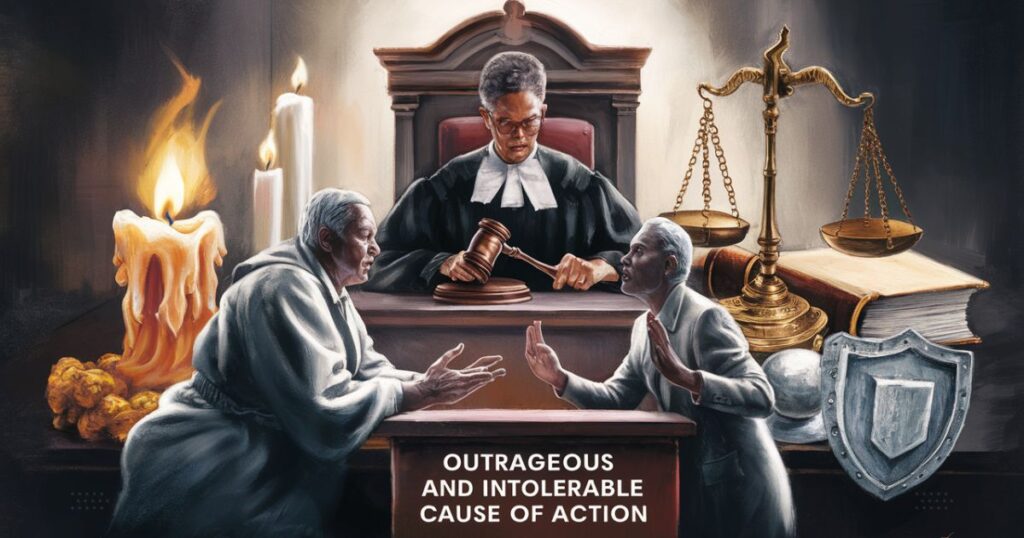INTRODUCTION
If you’re thinking about suing your landlord for emotional distress, it typically means you’re seeking compensation for the mental suffering caused by their actions or negligence. The amount you can claim varies based on the severity of your distress, the landlord’s conduct, and local laws.
Can Tenants Sue Landlords for Emotional Distress?
Yes, tenants can sue landlords for emotional distress, but the process is complex. To win such a lawsuit, tenants must prove that the landlord’s actions or negligence caused significant emotional suffering. This often requires showing that the landlord was aware of the distressing conditions and failed to address them. Documentation of emotional impact, such as medical records or therapy notes, can strengthen the case.
Variations in State Landlord Emotional Distress Lawsuits
Laws regarding emotional distress claims against landlords vary by state. Some states have specific statutes for tenant-landlord disputes, while others rely on general personal injury laws.
For instance, states like California might offer broader protections and higher potential damages, while others may have stricter requirements or less generous compensation. It’s essential for tenants to understand their state’s specific regulations and seek legal advice to navigate the process effectively.
The Elements Necessary to Satisfy an Outrageous and Intolerable Cause of Action

To prove an “outrageous and intolerable” cause of action, a tenant must demonstrate that the landlord’s conduct was extreme and outrageous, exceeding the bounds of decency. The behavior must be so severe that it shocks the conscience of a reasonable person.
Additionally, the tenant must show that the outrageous conduct directly caused emotional distress, which was severe and distressing enough to warrant compensation. Evidence such as witness testimonies, documented communications, and medical records can help establish these elements.
Tenant-Landlord Civil Lawsuits in General
Tenant-landlord civil lawsuits typically involve disputes over lease agreements, property maintenance, or eviction issues. Common claims include unpaid rent, breach of contract, or unsafe living conditions. Tenants may seek remedies such as repairs, compensation for damages, or rent reductions.
These lawsuits usually require detailed evidence, including lease documents, communication records, and witness statements. Legal outcomes depend on state laws, the specifics of the case, and the quality of the evidence presented. Consulting with a legal professional can help navigate these complex disputes.
Legal Resources and Support for Tenants

Tenants can access various resources for legal support, including tenant advocacy organizations, legal aid societies, and housing counselors. Many communities offer free or low cost legal assistance through local nonprofits or government programs.
Online resources, such as tenant rights websites and forums, can also provide valuable information. Additionally, some areas have tenant unions that offer support and advice.
Landlords Protect Themselves Against Lawsuits by Avoiding Wrongful Actions
Landlords can shield themselves from lawsuits by following legal obligations diligently. This includes maintaining properties in a safe and habitable condition, addressing tenant complaints swiftly, and adhering to fair housing laws. Clear, written leases and accurate documentation of property conditions can also help prevent legal issues.
The Statute of Limitations
The statute of limitations sets a deadline for filing lawsuits. For landlord-tenant disputes, this period varies by state and type of claim, such as breach of contract or personal injury. If a tenant waits too long, they might lose the right to sue, as courts will not entertain claims made after the statute expires.
The Lack of Evidence to Show Damages
Without substantial evidence of damages, such as medical records or repair invoices, a tenant’s claim might falter. Proof of emotional distress or financial loss is crucial for winning a lawsuit. Landlords can challenge claims by arguing the absence of credible evidence or disputing the extent of damages.
No Defense Duty for Allegations
Landlords generally don’t have a duty to defend themselves against allegations unless a lawsuit is formally filed. They must respond to legal claims with appropriate evidence and arguments but aren’t obligated to proactively address potential allegations before they arise.
Impact of Emotional Distress Claims on the Landlord-Tenant Relationship

Emotional distress claims can significantly affect the landlord-tenant relationship. Such claims often arise from severe issues, like persistent property problems or unaddressed complaints, which can strain interactions. When tenants file emotional distress claims, it might lead to a breakdown in communication and trust.
Landlords may become defensive, and tenants might feel less secure in their living environment. This strain can result in heightened tensions, potentially leading to further disputes or even eviction notices. Both parties might benefit from seeking mediation or legal advice to address issues constructively and restore a positive relationship.
When Can You Sue Your Landlord for Emotional Distress?
You can sue your landlord for emotional distress when their actions or negligence cause significant mental suffering. Examples include persistent unsafe living conditions, unaddressed harassment, or serious breaches of privacy. To pursue a claim, you must demonstrate that the landlord’s conduct was extreme and outrageous, causing severe emotional impact.
Additionally, you need to provide evidence linking the landlord’s actions to your distress, such as medical records or personal testimony. Understanding local laws and consulting with a legal professional can help determine if you have a viable case.
Also Read : PO Box 340 waite park mn
hash-markHow to Sue Your Landlord for Emotional Distress
- Gather Evidence
Start by collecting evidence of the emotional distress you’ve experienced and the landlord’s actions causing it. This includes keeping detailed records of incidents, medical documentation of emotional or psychological impact, and any correspondence with the landlord. - Contact an Attorney
Consult a lawyer who specializes in tenant rights or personal injury. They can guide you through the legal process, assess the strength of your case, and help you understand your rights and potential outcomes. - File a Claim
Your attorney will help you file a formal complaint or claim in the appropriate court. This document outlines your allegations, the evidence you have, and the compensation you’re seeking. Ensure all paperwork is completed accurately and submitted on time. - Consider a Settlement
Before going to trial, consider negotiating a settlement with your landlord. Settlements can provide compensation more quickly and avoid the uncertainties of a trial. Your lawyer can assist in negotiating terms that are fair and satisfactory. - Go to Trial
If a settlement isn’t reached, your case will proceed to trial. Present your evidence, witness testimonies, and legal arguments to the court. The judge or jury will then decide on the outcome and any damages awarded.
hash-markHow Much Can You Sue Your Landlord For If You Suffered Emotional Distress?

The amount you can sue your landlord for emotional distress varies widely based on the specifics of your case. Factors include the severity of your emotional suffering, the landlord’s conduct, and local laws. Courts generally award damages based on the evidence of distress and its impact on your life.
Compensation might cover medical expenses, therapy costs, and emotional pain and suffering. The amount also depends on whether the distress led to other losses, such as job impacts or significant lifestyle changes. Consulting with a legal professional can provide a clearer estimate tailored to your situation and jurisdiction.
hash-markSuing Your Landlord for Emotional Distress Bottom Line
Suing your landlord for emotional distress can be complex and requires substantial evidence. The process involves proving that the landlord’s actions caused significant emotional suffering and that their behaviour was extreme or outrageous.
Potential damages include compensation for medical treatment, therapy, and emotional pain. While the outcome varies depending on the specifics of your case and local laws, having a strong legal strategy and detailed documentation can improve your chances.
Consulting with an attorney experienced in tenant rights can help you navigate the process and understand what to expect in terms of potential compensation and legal challenges.
Conclusion:
Taking legal action against your landlord for emotional distress is a serious step that requires careful consideration and preparation. It’s crucial to gather compelling evidence, seek expert legal advice, and understand the potential outcomes and damages involved. While the process can be challenging, a well-documented case and a strong legal strategy can help you seek the compensation you deserve. Remember, addressing issues with your landlord directly and seeking mediation might resolve disputes more amicably. Ultimately, ensuring you are well-informed and supported throughout the process will increase your chances of a successful resolution.







